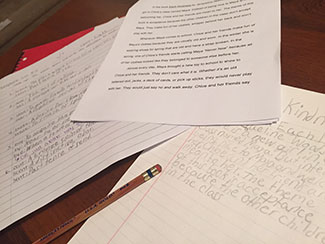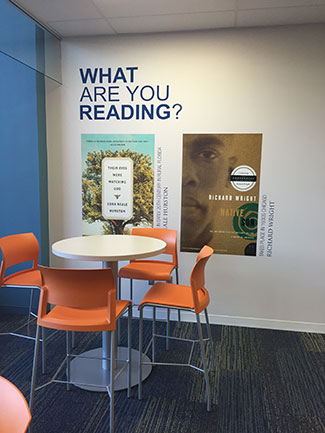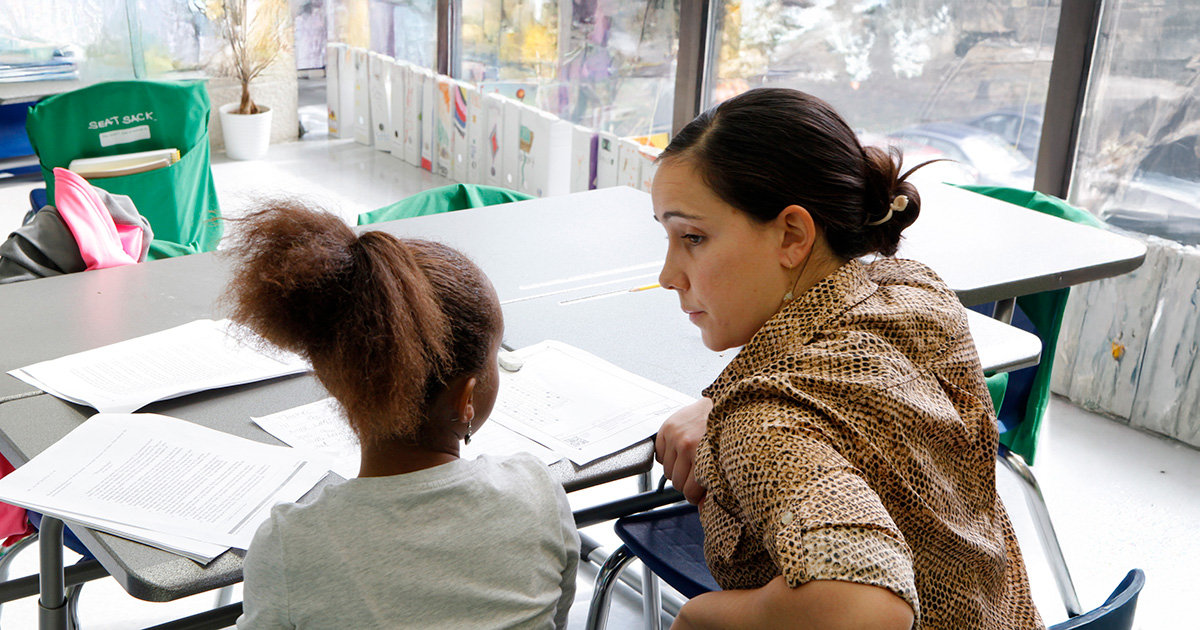This is the first in a four-part series. NOTE: This post was updated on Feb. 7 to reflect Betsy DeVos’ confirmation as U.S. secretary of education. Read Part 2, Part 3, and Part 4
With his selection of Betsy DeVos, who was confirmed on Feb. 7 as U.S. secretary of education, it’s clear that President Trump intends to live up to his previous statements that school choice will be a major focus of the new administration. DeVos is a longtime school choice advocate, having supported not only charter schools but also private school choice and online schooling. Her nomination has led commentators to speculate about how the federal government might promote choice.
With this in mind—and given the emphasis on evidence use in the nation’s new education law, the Every Student Succeeds Act—my colleagues and I are presenting a series of blog posts to outline a potential research agenda for the new administration. We will explore the questions that could be addressed to assess the impact of school choice programs on students, thereby informing future policy decisions about school choice.

If the administration creates or supports school choice policies, the Institute of Education Sciences (the Department of Education’s research arm) and independent researchers will have opportunities to learn much about the effectiveness of different kinds of policies, programs, and schools. There is an enormous amount we do not yet know about the effects of school choice, both in general and for specific types of programs.
In this introductory post, I discuss broad research questions that are relevant to studies of any of the varieties of school choice that the Trump administration might promote through federal initiatives. In the second post, Philip Gleason will talk about open research questions on charter schools. Christina Tuttle will follow with a discussion of what we should learn about private school choice policies, including school vouchers, education savings accounts, and related policies. I will conclude the series with a discussion of online schooling, a rapidly growing form of school choice on which few effectiveness studies have yet been conducted.
Key Questions on School Choice
Some of the research questions that would merit more attention in the context of a federal push for school choice are potentially relevant to vouchers, charter schools, and other types of choice programs and policies. I outline some of those questions here.
How can policymakers ensure the quality of schools of choice?

The variation in the effectiveness of charter schools in different communities across the country is surely related to the quality of those schools; the negative effects of Louisiana’s voucher program (found here and here) on the achievement of participating students has been attributed to the low quality of participating schools. Even so, creating policies that ensure high quality schools of choice might not be easy. For example, the success of charter schools in Boston is often credited to the rigor of the chartering process imposed by the state of Massachusetts, but the low quality of schools participating in the Louisiana voucher program has been blamed on excessive regulation that might have discouraged better private schools from participating. Whether either (or both!) of these stories is correct is a matter of debate.
The generosity of funding, too, is likely to have implications for the supply; a limited voucher that covers only a small part of the true cost of educating a student, for example, is less likely to encourage new schools to enter the market than a program that provides enough funding to fully cover costs. Research is urgently needed on the factors that promote the development of high quality schools of choice.
Can privately operated schools (charter, private, or online) serve the public purposes of education as well as (or better than) traditional public schools?
The education of an informed electorate was the original purpose of public education, and a large majority of Americans still endorse that purpose. We must have schools that not only teach students what they ultimately will need to know to earn a living, but also the civic skills, knowledge, and attitudes necessary for active and effective participation in a diverse democracy.

Before the establishment of charter schools 25 years ago, American public education was grounded for a century and a half on the ideal of the common school. The common school ideal assumed that public schools would successfully educate students for citizenship because the schools are democratically governed, under the authority of elected officials. No one has ever tested this assumption empirically, but policies promoting private schools and (privately operated) charter schools challenge it implicitly. Very few studies have attempted to assess whether private and charter schools effectively promote the civic skills, knowledge, and attitudes necessary for effective citizenship (though the very limited existing evidence is more encouraging than not).
Mathematica is now beginning a study that will examine the civic impacts of Democracy Prep, a charter school network that explicitly seeks to prepare its students for “a life of active citizenship.” This is just the tip of the iceberg. In the context of efforts to promote privately operated schools, there is an opportunity to initiate an ambitious research agenda to evaluate how well different types of schools serve this key public purpose.
Who uses school choice programs, and how do the programs affect the sorting of students across schools?
Details of the choice policies are likely to be important for this issue. Some programs specifically target students from low-income backgrounds, students currently in low-performing public schools, or students with special needs; other programs are universally available. Some programs (most charter laws, for example) require participating schools to accept all applicants, whereas others allow schools to select their students. Moreover, the question of how students end up distributed in schools is quite different than the question of who uses choice schools. A choice program might have equitable access in the sense that disadvantaged students are well-represented in the program, but whether they end up in the same schools as more advantaged students is another issue. Programs that allow existing private schools to participate might have a different effect on the integration of students by race and social class than programs that exclude those schools. The characteristics of student participants and the sorting of students across schools vary widely in existing choice programs, and research can help to identify the policy factors that affect both the equity of access to the programs and the extent to which they promote (or reduce) integration.
What are the effects of school choice policies on students who remain in traditional public schools? Do those effects depend on funding, regulation, market share, or other contextual factors?
Any policy that has the effect of moving students from traditional (district-operated) public schools to other schools (whether charter, private, or online) has the potential to affect students who remain in the traditional public schools. Those effects could be negative if the loss of funding and motivated families reduces the effectiveness of traditional public schools, or they could be positive if competition encourages traditional public schools to improve. Various scholars have tried to study these indirect effects in the context of charter schools and voucher programs. Findings have usually indicated no significant effects or modest positive effects rather than negative effects, but the issue is far from settled. The methodological issues are thorny, and effects might differ depending on the design of the policy, the flow of resources, and the local context. Under most varieties of school choice, most students are likely to remain in traditional public schools, which means it is critical to account for potential effects on them, positive or negative.


